Don't wanna be here? Send us removal request.
Text
You Think That People Would Have Had Enough of Silly Love Songs
When it comes to music, there is no more prominent theme then one of love. Nearly every popular song on the radio is in some way tied into the theme of love. Normally, this love is portrayed positively. This is the sort of love that makes your heart skip a beat and leaves you unable to concentrate on anything except the person making you feel this way. However, love songs cannot always be positive. Love is never perfect and is hard to achieve and maintain for many, often leading to heartbreak and extreme emotion. This week, I wanted to focus on these types of songs. Normally not as popular, these songs portray love in a way that exposes it’s flaws. Love isn’t only beautiful but harmful and these artists have released songs this week that play into this idea that so many are familiar with. For Zayn, it’s being lied to and taken advantage by the person you love. For Shawn Mendes, it’s the sting of unrequited love. And for the Weeknd and Belly, it’s love based off your material value. All different experiences, but similar in the way that their interpretation of love deviates from the joyful and adoring love portrayed in music we are often so familiar with.
A Broken Betrayal
youtube
Zayn released his single “Entertainer” this week ahead of his second album release. This song, fitting well within his usual style of mellow R&B/Pop, describes Zayn’s relationship with someone turned sour. He describes a scenario where he was lied to, but knew about it the whole time making it hurt worse than it would have otherwise. This is seen through his lyrics when he sings, “You thought you had me, did you?/When you lied to my face, I could see the truth/Every step with the way I knew/How you fooled me both.”

However, besides the hurt seen as caused by the lying of his partner, Zayn also describes toxic parts of the relationship that he himself created. While he was lied to and taken advantage of, his relationship can be seen as something he was already negatively controlling. In the chorus of the song Zayn sings “Thought that you should know that you were my favorite entertainer/I watch you and laugh with, and fuck with you/Don't you blame me for a fool/In this game, I own the rules”.
Then it seems that the lying was only hurtful to him because he was no longer controlling her or the variables of the relationship. By referring to her as an “entertainer” it seems to express the idea that she was used as a form of amusement for him as opposed to an actual romantic partner. Basically, he was playing her before she ever played him.
The music video enforces some of these ideas, but also downplays others. Within the song, Zayn is singing about his toxic love from a place of confidence. He knew what was happening the whole time and was never serious about the relationship anyway. She needs him more than he needs her. However, in this video it seems the opposite is true. The love interest seems to only come to Zayn when he has something to offer her and then disappears when it seems he does not have it. As opposed to Zayn taking control of this situation as he seems to in the song, he looks lost and disappointed in the video (as seen below).

Perhaps this speaks to his true intentions. The confidence is a facade created out a place of hurt. In order to avoid his own heartbreak, he convinces himself and others that is unbothered and was actually the one who did the heartbreak first. When asked about his upcoming album ahead of this release, Zayn explained to Zayn Lowe on Beats 1 “It’s going to be different than anything anyone has done before. It’s going to be interesting to see how the audience reacts to this kind of release. I wanted to try something different, I think it’s all going to make sense in the end when the album finally drops.”
When You Try Your Best But You Don’t Succeed
youtube
Shawn Mendes has dropped his new album this week to mass anticipation. Known for largely writing love songs, he didn’t disappoint with this release. One of the most popular tracks, “Where Were You in the Morning?” speaks about Shawn’s experience with unrequited love or a love that did not pan out as initially expected. This song marks a deliberate attempt at a more drastic break from his teenage past into more adult-themed content.

The song describes the aftermath of a one night stand and the feelings Shawn was coping with after he had woken up alone. He describes a scenario in the intro where it seems whomever he slept with led him on with false promises. He sings “You said, "I wanna get to know ya/Why you gotta get my hopes up?/You said that you were staying over/But then I woke up to the cold air.” It seems then that he slept with this person with the intentions or hope that there would later be a romantic relationship.
This song is interesting as it is coming from the unexplored perspective of the man being used for a sex. Normally a female-dominated narrative, this song explains the male perspective of being led on with false hopes by someone who only wished to take advantage of you. The song speaks of not only hurt, but a genuine sense of confusion regarding the entire situation. This is clear when he sings “And I'm looking up at the ceiling/And I keep wondering why” near the end of the song.
While Shawn has not made an official statements on the song in question, he did have this to say to his Twitter followers:


Here’s a set of interviews if you want to learn more about his album’s process:
youtube
Costs Vs Benefits
youtube
Artists Belly and the Weeknd have released a new single this week as well. Known friends, they have collaborated in the past for singles like “Might Not”. This release, titled “What You Want”,talks about love born out of financial benefits. They sing about having love interests that only want them for their money and fame, not who they truly are. This fits well within the Weeknd’s recent musical narrative this year. After a public breakup, he released the EP “My Dear Melancholy,”, which is largely heartbreak songs.
This song describes having love interests that you know are attracted to you because of what you can offer them. In this case, the Belly and the Weeknd focus mostly on money. Belly sings in the opening verse “You just wanna spend my cash and smoke my weed/I got what you want”. Here he is saying that he knows the relationship is based off of what he is able to offer her, not what they are able to offer eachother.

This theme continues throughout the song. However, there is always a sense of power present within this song among the realization of money being a driving factor within these relationships. The Weeknd sings in his verse “When she make me mad, I leave her ass on read/I never let these girls get to my head.” So while there is a sense of hurt in this song, is it counteracted with the confidence also expressed in Zayn’s song “Entertainer”. In this song, their money both causes insecurity and security in their relationships--these girls do not love them for them but they also will not leave them if they still continue to have something to offer.
The driving chorus of the song as well as the title seem to sum up the song well, “I will never be what you need/But I got what you want.” The relationship will not be based off of solely romantic factors so they are never what she needs, but they will be what she wants as long as they continue to provide the resources she initially entered into the relationship for: money.
When speaking about the song and music video, Belly explained to Billboard “Me and Abel always have amazing chemistry when we work, but this one takes the cake."
All of these songs this week are interesting in that they work against pop culture’s ideals of positive love songs but are still working well within the pop culture sphere. It begs the interesting question of what songs are acceptable within pop culture and why? Does it depend on subject matter? The artist? The genre? Let me know what you think in the replies!
All the songs will be linked at my blog if you would like to listen to any of them!
#zayn#entertainer#love#heartbreak#toxic love#music review#the weeknd#belly#what you want#shawn mendes#where were you in the morning
0 notes
Text
Defying or Adhering to Expectations
Last week I talked about audience interpretations changing the meaning of songs. Songs that may have been written for one purpose and had been changed into another through mass interpretation of audience. This week, I wanted to discuss songs who rise above or fail expectations. When it comes to songs who are working to address large problems, it is easy for them to fail to meet the scope of the problem. This is true for one of the songs this week, Chris Janson’s “Take a Drunk Girl Home”. Written to address a culture of abuse, this song fails to address the actual perpetuators. However, in the case of Jessie J’s song “Queen” she takes body-confidence issues within society and is able to use her music video to address the true scope of the problem she is addressing. These artists both tackled large issues, but approached them in two completely different ways that either helped or hurt their cause.
There are also expectations for the artist themselves, especially those who are established with fan bases. This is true for another artist this week, the Backstreet Boys. Created in 1993, this group has managed to continue making music over 20 years later. To do so, they are actively toeing the line between nostalgia and reinvention, which has led to both success and failure. However, these expectations are what continue to drive their audience and thus the band themselves.
Working Outside of Yourself
youtube
This week, Jessie J released a song entitled “Queen” from her upcoming album “R.O.S.E”. Aimed at promoting self-love, her song discusses both the love women should feel for their own body, as well as how society will try to dissuade them from feeling this love. Jessie J is making a stance here directly against societal body expectations and addresses them head-on when she says “The world says beauty is changing/Fuck that, it's fake expectation”.

You can also see this defying of societal beauty standards in her music video, which features a cast of women who would not seem to fit within the mold Jessie J is addressing in society. Disabled women, women with vitiligo, elderly women, etc. According to Refinery29, Jessie J casted every woman herself to make sure that she felt everyone was represented in some way or form.
She also worked to make this song inclusive to the LGBTQ+ community—who are often left out of the conversation when it comes to discussing “women”. She openly casted both queer and transwomen for her music video, making sure her representation was much larger than just a body positivity conversation.

While Jessie J’s song can offer some sort of positive representation, it is her music video that really makes a more impactful statement. Her song could be considered reminiscent of past songs like Meghan Trainor’s “All About That Bass” or Hailee Steinfeld’s “Love Myself”, but while all of these song’s messages can seem fleeting or surface level, Jessie J reinforces hers through a multimedia approach while the other’s falls flat.
Jessie J here uses positive representation to her advantage. As opposed to making her music video solely herself singing to the camera, she stepped back and allowed other women to shine. As Jessie J could be considered a woman who seems to fit into society’s mold, being white, able-bodied and CIS, this work really speaks to a cause much greater than herself and makes for a solid message and representation within pop culture.
As such, she is managing to exceed the expectations of both myself and I am sure others. With body positivity songs, it often features a white woman singing about beauty standards that she already fits within. It is often women who are so outside of societal standards that their life is permanently in danger who are left out.
On Twitter, Jessie J had this to say about her song and music video:



A New Sense of Nostalgia
youtube
The Backstreet Boys have made their first comeback in over 5 years with their newest single “Don’t Go Breaking My Heart”. Much within the framework of their past releases, this song revolves around love and heartbreak with a repeated chorus of “Baby, don't go breaking my heart, breaking my heart”.
However, while their music may be adhering to their usual style, it is clear that their song and music video production are changing with the trends. While the Backstreet Boys have a backbone of fans, it is clear that their popularity is only a fraction of what it once was. After all, this music video only has about 12 million views compared against their highest viewed video which is almost at 500 million. With the rise of One Direction and boy bands within the KPOP music scene, it is clear the Backstreet Boys are trying to adapt what is making those groups so successful.
The KPOP style influences are clear within the music video set. Featuring LED lights and differing box sets, they are replicating the structure that has made KPOP videos so distinct and popular.
Backstreet Boys:

KPOP band Shinee:

They have also changed their sound. Incorporating more EDM and synth-based beats, their song fits among the current songs dominating the Top 40. The theme of love has always dominated music, so their lyrics are both fitting but also reminiscent of their past music. It seems that is the part of their group that remains unchanged.
The Backstreet Boys understand their position within the music scene and I’m sure also understand that their age, both as a band and individuals, is working against them. Much of their fans have grown older and the boy bands currently dominating the media are extremely popular with young fans that are uninterested in men with families and children.

With a band like the Backstreet Boys that have a long history and solid framework, there are clear expectations for their songs and music videos. However, it is clear that they are adapting to work past and exceed these expectations that could so easily box them into something pop culture is no longer interested in. It is easily seen in their newer and more visually-pleasing music videos and their songs.
By exceeding the expectations that have been set for them, the Backstreet Boys have managed to continue on in a genre of band and music that so often has an expiration date. After all, how often can you say you’ve seen a boyband survive over 20 years? Clearly the band members think similarly as they are quoted by NME as saying “Hopefully we’ll have another 25 years to go. We’re the Rolling Stones of pop! That’s the Backstreet Boys.”
Drawing Negative Intention and Attention
youtube
Country artist Chris Janson has released a music for a song he revealed just over 5 months ago titled “Take a Drunk Girl Home”. Within this song he addresses the common problem of men taking drunk women home to sexually abuse them and sings about how men should be bringing these girls home safely and then leaving. At first glance a positive message, this song and music video are riddled with problems that fail the expectation of severity a subject matter like this so desperately needs.

The music video is a timeline of a girl’s life, from when she is younger and unable to go to the daddy daughter dance with her father, and when she is older and leaving a bar with a man. It is assumed that this young girl has an absent and abusive father, as shown when she is watching him argue with her mother and then later helping her mother ice her injured wrist.
This storyline doesn’t fit right with me. It is framed in a way that makes it seem as if she has issues with her father or “daddy issues” that make her more likely to be targeted and abused by other men. Directly after the scene following her younger self and her father, she is seen drunk at a party and likely raped by the man who is with her. This scenes are followed so closely after one another that the correlation is obvious, as if this woman’s issue with her father open her up to abuse--avoiding the realities of abuse which spare none.

The lyrics are also incredibly problematic with the repeated line within the chorus of “That's how you know the difference between a boy and man/You take a drunk girl home”. This is a common distinction in abuse cases, as if a man cannot abuse a woman, it is only “boys” who are capable. In actuality, it is the very culture and mindset that creates masculinity and men that allow this abuse to continue and prosper. Using the term “boys” only alienates the problem away from masculinity, where is where the very problem stems.
While the very idea that this song needed to be created is ridiculous to me, I see what the intention was. This song wanted to address a huge problem within our society about the abuse of women. However, this song failed within it’s expectations. Instead of addressing the men who make this abuse possible, this song and music video seem to try to push the blame away to both the woman herself and the created idea of the “boy”.
When speaking about this song, Chris Janson told Rolling Stone “It's teaching the younger generation of men that this is probably the better way to treat a girl. Instead of 'let's get drunk and hook up”’.
#jessie j#queen#feminism#social justice#backstreet boys#dont go breaking my heart#chris janson#take a drunk girl home#analysis#music
0 notes
Text
Things are Not Always What They Seem
When it comes to music, it is often made with a direct intention. Whether it be to express love, lust, or hate--the song usually has a clear meaning the artist or the writer envisioned. However, when this same music is released to the public, interpretations can change or be flipped around entirely. This is true in the case of Rita Ora’s newest single “Girls”. Meant to express bisexuality in a positive and supportive light, many found the song offensive and stereotypical. However, in songs like BTS’s “Fake Love” or Arctic Monkey’s “Four Out of Five”, sometimes the intended meaning is flipped positively and the interpretation of the song is transformed into something must greater than it once was. It can express themes some may not even see, in the case of the interpretation of BTS’s “Fake Love”, which fans are saying hints at greek mythology and differing universes through symbolism and specific lyrical references. Sometimes it can even express a problem with society so great that it speaks of the future repercussions we as a society could face like in the song “Four Out of Five” by Arctic Monkey’s. Originally written as an advertisement of a hotel, it speaks of societal issues through specific references and scenery. Regardless of meaning of intended meaning, song’s are inevitably transformed by the audience and turned into something new.
The Different Side of Love
youtube
BTS have returned with their long anticipated comeback single “Fake Love”. Featured on their first full album since 2016, “Love Yourself:Tear”, this song was quick to draw a large audience and was viewed over 50 million times in a little more than 24 hours.
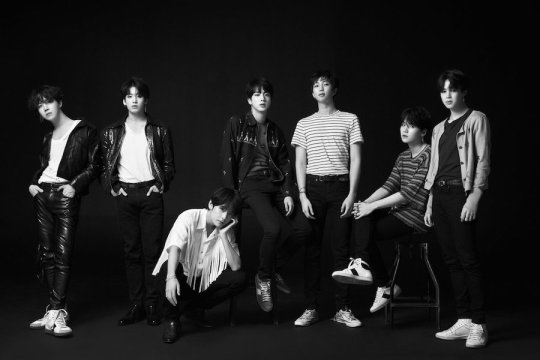
This song, a deliberately darker release than their last love-filled single “DNA”, focuses on the repercussions of love turned sour. Featuring lyrics like “I changed everything just for you/But I dunno me, Who are you?”, BTS highlight the way in which their pre-existing love has now become “fake”, or turned into something that is all pretense.
Their music video, which references several prominent themes within the universe of BTS’s past releases (more info found here), is prominently shrouded in darkness. Not only have all the members adopted an unusual choice (for them) of dark hair, they have also seemed to express their frustration and misery in outfits that seem to be more tattered and slightly chaotic. This darkness is also present in the scenery, as many of the scenes rely on shadows--both as a point of showcasing choreography as well as bringing the members in and out of focus.

This choice really emphasizes the tone of the song, one that features deliberately somber lyrics but a harsh and repeated back-beat. Their love is fake and falling apart, making them not only sad but angry at how it seems to be not through not their own fault but their partners’. This is driven home with their repeated chorus “Love it’s so mad, love it’s so mad/Try to erase myself and make me your doll/Love you so bad, love you so bad/Mold a pretty lie for you” as well as the continued imagery within the music video like Taehyung’s phone turning to dust or the hallway under Jungkook’s feet continually being dropped from underneath him.

Since arriving in United States for the Billboard Music Awards on May 20, BTS have given many interviews where they talk about their new album and subsequent single. In one interview for J14 when asked about this album and their single, the band’s leader RM said
“Basically, love is a complex right? And, there’s sort of some sides that make us feel really bad or depressed. There could be tear, there could be sadness. So, this time we wanted to focus on some of the parts of love that we want to run away from. And so the name is tear and the main title single is going to be “Fake Love”. We want to say if you are untrue to yourself, love won’t last. And the love could be between a person and a person, it could be between me and myself.
The rest of the interview as well as some links to other interviews where BTS discuss the finer details and motivations for their song can be found here:
youtube
BTS with Zach Sang
BTS with Entertainment Tonight
Representation turned Rage
youtube
Earlier this week, Rita Ora released her single “Girls” with fellow female artists Charli XCX, Bebe Rexha, and Cardi B. Written with inspiration from Katy Perry’s late 2000′s hit “I Kissed a Girl”, the song seemed on track to be a hit. However, social media users and other singers seemed to find a problem with the way the song seemed to portray bisexuality. Openly LGBTQ+ artists Hayley Kiyoko and Kehlani both were quick to express the way they felt the song fell flat.
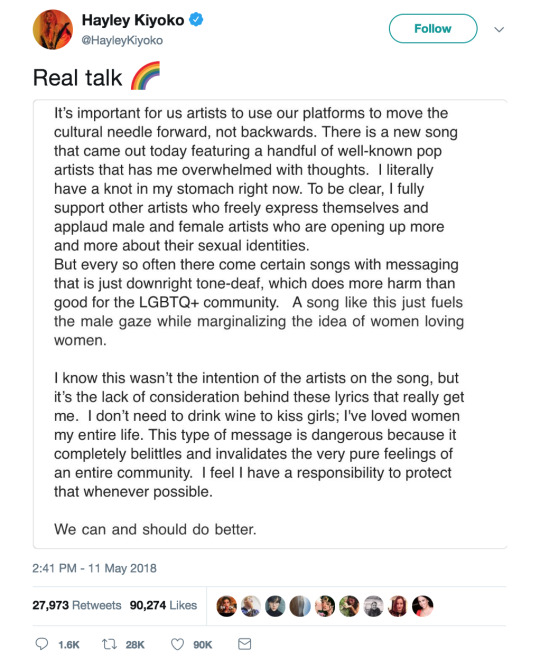
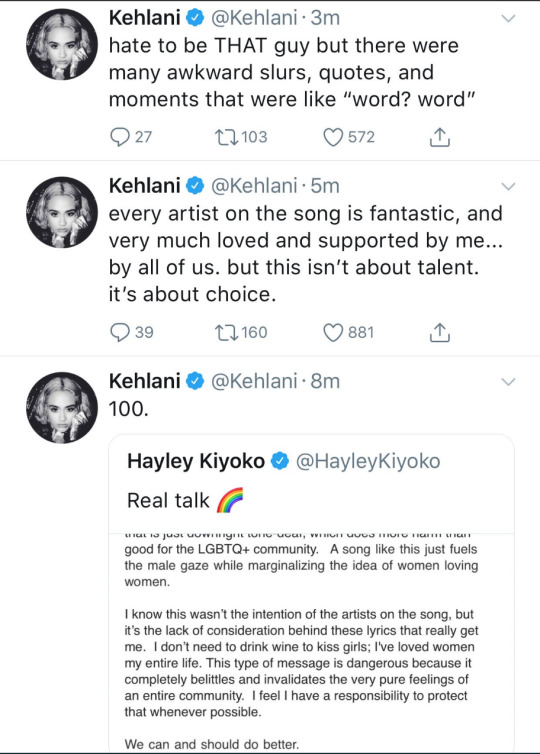
With the song featuring a chorus that repeats, “Sometimes I just wanna kiss girls, girls, girls/Red wine, I just wanna kiss girls, girls, girls”, it is easy to see where the intentions of expressing positive representations of bisexuality failed. LGBTQ+ identities are already seen as fake or a deliberate choice by much of the world, so associating alcohol with the desire for a woman to kiss other woman can lead to further misunderstandings.
Another lyric of the song states “Now I could be your lipstick, just for one night (one night).” While not blatantly harmful, this also implies a fleetingness to the relationship that the song is portraying. That while a relationship between women can exist, it is only something that ever happens as a passing interest and is never something long-term.

Considering bisexuality often finds discrimination from both gay and straight communities, it seems a controversy over a song like this was bound to occur. After all, while Katy Perry’s song still receives radio play nearly 10 years later, it too has been criticized for its portrayal of a female relationship. Katy Perry herself has said, if given the chance, she would rewrite her song and change some of the lyrical stereotypes she portrayed.
After this controversy started making waves on social media, Ora was quick to put out a statement regarding her own thoughts on the song.
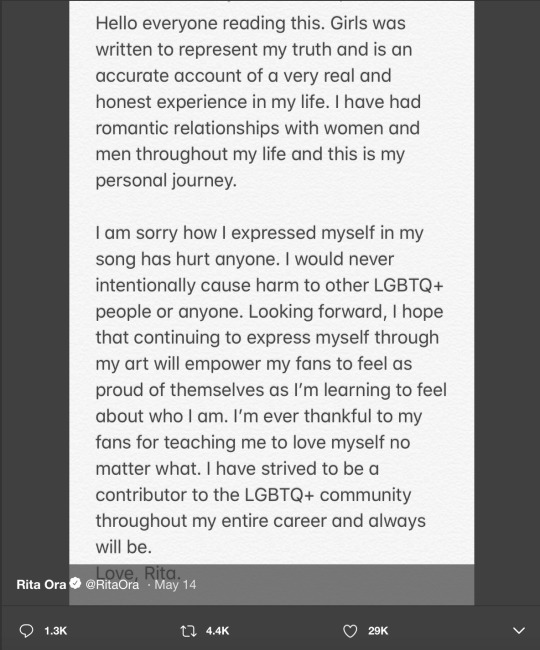
A controversy like this is difficult to place. Although Ora’s intentions were likely positive, if her intention was to make the song representational of an entire community she did not seem to hit the mark. However, if this portrayal was just about her own experiences with bisexuality, it seems unfair for others to put down the way she chooses to express her own sexuality. It lies up to interpretation then. If the song succeeds as a personal statement and fails as a representative one.
A Society Outside of Society
youtube
Arctic Monkey’s have returned from a nearly 5 year hiatus with their newest album “Tranquility Base Hotel and Casino”. Known for their heavy rock tones, it came as a shock to many fans the way they have stemmed away from their previous work and adopted more synth tones with their single “Four Out of Five”.
This single serves as an advertisement of sorts to the larger theme of their album, the Tranquility Hotel itself. Reminiscent of the Greek Lotus-eaters, the song seems to encourage the listener to come and stay in their hotel without much thought. This is further highlighted with the lyrics “Take it easy for a little while/Come and stay with us, it’s such an easy flight” repeated throughout the chorus. This hotel, as explained by Arctic Monkey’s, is said to be located on the moon within a society forced to flee Earth.


While the song serves to persuade others to stay within it’s hotel in an alternative universe, the song addressed many issues that are prominent today. Speaking of the exodus that required the population to flee Earth as well as the gentrification that is then occurring within the new civilization in the lyrics “Since the exodus, it’s all getting gentrified/ The Information-Action Ratio (The Information-Action Ratio)/Is the place to go, four stars out of five.” Also mentioned in those lyrics is the concept of the “Information-Action Ratio” described in an interview with the lead singer Alex Turner as “a reference to the idea of how we have so much knowledge at our fingertips but don’t quite know what to do with it.”
It is clear here that while this song might be occurring in a world outside our own, the problems we once had did not just disappear. The exodus (or the fleeing of the Earth from most likely environmental failure) required the population to leave, something we as a society still do not have a solution for. Gentrification is also still an issue, as we continue to rebuild areas dominated by minority communities and force them to move by inflating prices. This displaces large populations of people and adds to our ever-growing population of homeless and low income individuals.
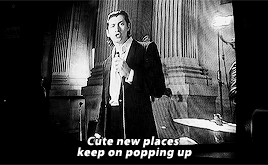
It seems then that this song could be interpreted as a warning of sorts. Not only are our current problems regarding the environment and gentrification detrimental to ourselves, we are also possibly creating technology at a rate we cannot keep up with. The advertisement for the hotel is just surface level, what really speaks the loudest is what is overlooked within the lyrics.
#BTS#billboard music awards#fake love#love yourself: tear#rita ora#charli xcx#cardi b#bebe rexha#girls#arctic monkeys#four out of five
0 notes
Text
The Variations of Violence
youtube
Childish Gambino created waves this week with the release of his music video for his latest song “This is America”. Depicting a startling mix of both dance and gun violence, Childish Gambino has managed to raise the question of the values of both the American public and the American media. Although much of the symbolism behind the music video remains unclear and unconfirmed by Gambino himself, the overarching message that has been taken away is one that emphasizes the way the American public prefers to focus on pop culture rather than the violence affecting the population—particularly in black communities. This is shown by Gambino and several others dressed in school uniforms dancing while differing acts of violence appear to be occurring in the background, like individuals fighting and chasing one another.

This is even more drastically contrasted with Gambino pausing his dancing both to shoot one individual and then a group of individuals within a choir, showcasing the brief attention gun violence gets within popular culture before it is distracted with more fleeting events. Gambino here seems to be targeting his audience’s emotions, through contrasting feels of happiness and shock/horror. This is his way of emphasizing the way we would prefer to look at society instead of the way it actually is. Doreen St. Félix of the New Yorker writes about the video “This is what it’s like, Glover’s video seems to say, to be black in America—at any given time, vulnerable to joy or to destruction. When his character is not dancing, he is killing.”
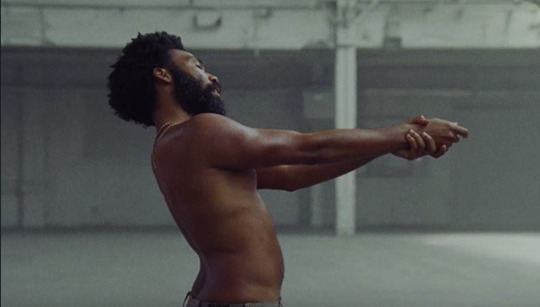
Those on social media have been quick to point out other references as well, including what they believe is a reference to Jim Crow and the biblical four horsemen. Justin Simien, the creator of the popular Netflix original show Dear White People, explained on Twitter,

Other conclusions are continuing to be made, both through popular Twitter threads like Simien’s, and YouTube videos from Gambino fans and music critics. Though the exact meaning of the music video may never be explained, it seems Gambino achieved what he set out to do. Make his audience as well as the general public question what we place our value and attention on in today’s tumultuous society.
youtube
Popular boyband BTS has released a track this week as well as a teaser towards their upcoming album dropping May 18. Member Taehyung or V (as he’s known publicly) is solo in this R&B track “Singularity” as he sings about the danger of losing one’s self within one’s self. Featuring lyrics like “I dumped myself into the lake/I buried my voice for you”, Taehyung seems to be targeting the popular Greek myth of Narcissus—a man cursed to love himself to the extent that he drowns in a lake staring at his own reflection. This can be seen in aspects of the music video as well, particularly a seen shot from below where he seems to be staring at his own reflection and caressing the water.

While the meaning of the song has also not been revealed by the band or anyone within the production, it seems that one can garner this song is about grappling with the idea of loneliness to the extent that someone feels as if they are lost within themselves. The music video features a recurring theme of masks; one’s Taehyung continues to banish as they appear behind him like ghosts in the black surroundings.

Different versions of himself all seemingly being capable of being donned at a moment’s notice. Twitter user @mochiswings seems to feel similarly, as they write about their own interpretation of the song and video and how Taehyung uses the masks to hide or change his true self.
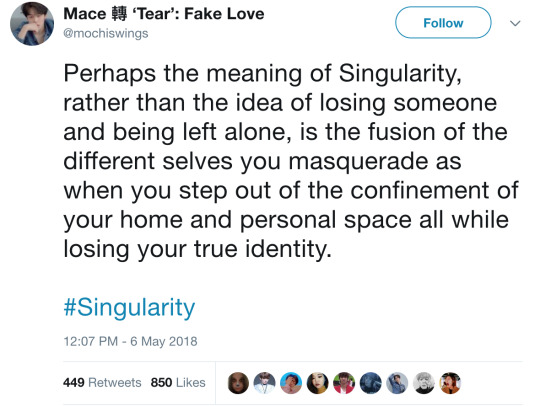
The song and music video’s grappling with loneliness and forced identity is left with a contrasting image in the conclusion of the music video. While the song ends with the chorus “But in the end, spring will come someday/The ice will melt and flow away “ (a reference to the band’s earlier release “Spring Day” about the end of hard times), the music video ends with the donning of one of the white masks with a black tear dripping down the face. Creating a seeming contrast between an inevitable better future, but a future that maintains being forced within one of the masks or identities. A way of possibly saying that one’s self can never truly bypass loneliness without first comprising some part of who they are.
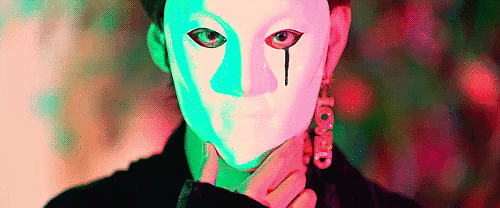
The final release of the week I’ll be covering is the collaboration between Shawn Mendes and Khalid, two of the most notable young performers right now.
youtube
A guitar-led, slow track about the conception of youth in a time that seems to be targeting the young. Featuring the repetitive phrase “You can't take my youth away/This soul of mine will never break”, Khalid and Shawn Mendes reflect about the current time period and the way they are refusing to let the tragedies rob them of their youth. When asked about the song Shawn Mendes said below in interview with Zane Lowe “My youth, trying to be taken away from me. That, not youth as in my age, youth as in my love, my happiness, my joy, my purity.”

Written in the wake of tragedies like the Manchester bombing and the Parkland shooting, Khalid and Mendes target the emotions an event like that can have on an individual and how they feel as if they cannot cope with the outside world. They sing “It's hard to sleep at night, knowing what's outside/Feeling hopeless, I need focus” as a way of describing their own experience following tragic events in the hope of relating with the way their audience may feel as well. They want to express to their audience that these feelings are valid and important, but not all encompassing.

This is made clear later with the lyrics start to demonstrate the way in which these events will not permanently take away themselves or their youth. Singing together “Pain, but I won't let it turn into hate/No, I won't let it change me”, they express that you cannot let the tragedies of today permanently affect you into the future. You must work to get past them in order to maintain your youth, and all the positives that accompany it. Shawn Mendes perhaps explains best in an interview with the Britain’s Daily Star when he says “It’s the most important song on the album. I was touring around Europe when the events of Manchester and London happened, it was very overwhelming. I wanted to write something but it had to be about the feeling for us as a generation when one of these things happens. So I wrote a song about our youth, a feeling that can’t be taken away from us.
#shawn mendes#khalid#bts#kpop#gun reform#singularity#this is america#childish gambino#youth#social justice#sentientsongs
1 note
·
View note